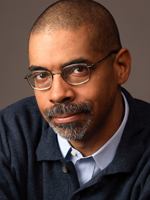
To hear the critics tell it, the recent oral argument in Mahmoud v. Taylor presages a Supreme Court retreat from the protection of LGBTQ rights. The suit was filed against a Maryland school district by Muslim and Christian parents who want the right to exempt their young children from classroom readings of stories in which (for example) Uncle Bobby marries his boyfriend Jamie. It's been styled as raising the question of the limits of religious freedom.
Fair enough. I'm a scholar of the Constitution's religion clauses, and I've spent much of my career writing about the precise dilemma the case raises. Nevertheless, I'd propose a somewhat different frame, asking less about the First Amendment and more about the nature of education in a democracy.
The case's oral argument went about how one would expect: Counsel for the plaintiffs had hardly opened his mouth when the fireworks began. Justice Sonia Sotomayor asked the lawyer to point to anything coercive about the classroom lessons that included, among other things, a fictional account of a same-sex marriage; Justice Samuel Alito leaped in to say, "Maybe it is a good message, but it's a message that a lot of people who hold on to traditional religious beliefs don't agree with." From there on, so it seems to this reader of transcripts, the justices did more talking than the lawyers.
Much of the argument involved the correct interpretation of the Supreme Court's ruling almost a century ago that parents have the right "to direct the upbringing and education of children under their control." The parents say that the decision creates a right to opt their children out of objectionable lessons; the school says the decision creates a right to not send the children to public schools but does not restrict what they learn once they're enrolled.
These are deep and difficult questions, to which I've devoted many pages over the years. So why don't I frame the issue the way everyone else does?
Let's go back a way.
A long way.
When I was in 8th grade, my history teacher told the class that the slaves in the antebellum South were happy. Oh, there were a handful of malcontents and hotheads who dreamed of freedom. But most of the captive workforce, she told us, was content with its lot in life; certainly, the slaves in America were better off than the cousins left behind in Africa.
I was puzzled. I'd been raised on the tale of my great-great grandfather, Stanton Hunton, who on his first two attempts to escape enslavement in Virginia was caught and carried back in chains, before at last reaching Canada on the third try. Later he returned to the US and, risking re-enslavement, traveled to Mississippi to ransom his brother. Now here was a teacher I adored telling me that Stanton had been not a hero but a trouble-making malcontent.
It won't surprise you to learn that my parents were furious. But I was a kid and sufficiently confused by the whole thing that when my mother arranged to have a word with the teacher, I was mortified. Teachers, not parents, were the authorities. Nevertheless, a few days later, the teacher corrected, at least in some respects, the lesson.
The Maryland parents concerned about religious freedom are asking the Supreme Court for a good deal less. They're not demanding a change in the curriculum. They're asking that the government sufficiently respect their authority over the raising of their children to grant them notice of what is happening in the classroom and the freedom to opt their children out.
I'm not saying the cases are the same. Of course they're not. In a world increasingly marked by sexual and gender diversity, it makes sense for schools to search for ways to incorporate the grand differences we see around us into the classroom. Nevertheless, as current events in Washington are illustrating, it matters a great deal in a democracy how those who wield authority treat those who dissent.
If it's true, as plaintiffs claim, that members of the school board criticized a Muslim child for "parroting" her parents' beliefs, and the parents themselves for "aligning with racist xenophobes and White supremacists," that's inexcusable - and has the purpose of public education inside-out. Schools shouldn't be in competition with families over the training of the young; they should work in cooperation with families, complementing and not interfering with what is taught in the home.
Ironically, the challenged curriculum originally included an opt-out right for parents. It should have been left in. A humble respect for diversity is better than a cold and unblinking exercise of authority.
I might not agree with the Maryland parents about the harm that will result should their children participate in lessons that include tales of same-sex marriage and other issues that run sharply against the family's religious beliefs. But it's not my call. And it shouldn't be the government's call either.
Stephen Lisle Carter is an American legal scholar who serves as the William Nelson Cromwell Professor of Law at Yale Law School. He writes on legal and social issues.


 Contact The Editor
Contact The Editor
 Articles By This Author
Articles By This Author